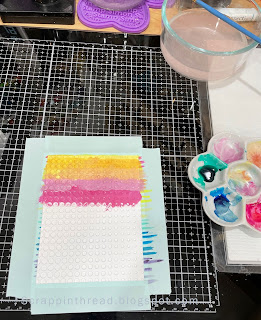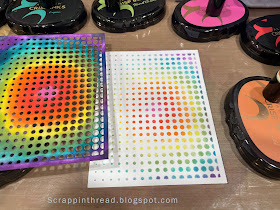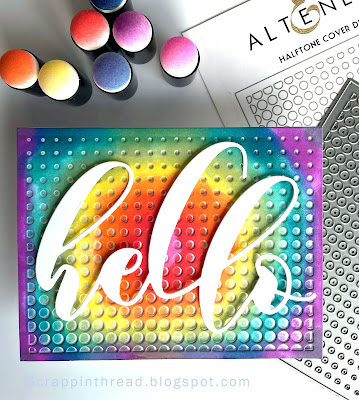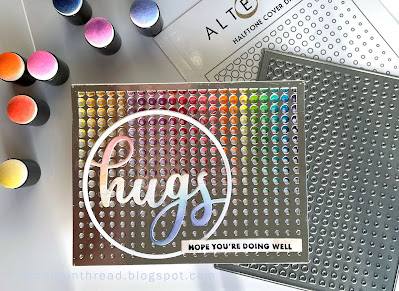What is AECP?
AECP stands for Altenew Educator Certification Program. Even though I have been using Altenew products for many years, I decided to challenge myself by going through their certification program. This post was born out of the first class that I completed. The cards started from an idea based on Lesson One in the Celebration Stencil Techniques by Laurel Beard.
Altenew's Product Line
You have probably seen Altenew's gorgeous layered stamped images on Instagram and on many blogs, including this one! They are the company that made layered stamping popular because the results are always beautiful. Did you know they also have other paper crafting products to complement their stamps?
Stretching your supplies
Today, I want to share one of their cover dies - but used in a less traditional way. By cutting a piece of heavy cardstock or watercolor paper, you can make a stencil for ink blending, spraying, and water-coloring, You use the die cut like you would with a mylar or plastic stencil. When you are done with it as a stencil you may be able to use it on a project, as well. The photo at the top of the post uses both the stencil and the stenciled panel. The stencil was moved over a little to create an interesting pattern.
Thoughts about paper
Paper weight matters. The heavier the paper, the more robust the die cut will be. However, if it is very thick, you may need to run it through your die-cutting machine several times for a good cut. In the projects posted here, you will see 140 lb watercolor paper and 110 lb cardstock. If using gel or paste on the die cut to make a textured card, use the heaviest weight paper you can get through your die-cutter.
 |
| Watercolor mixed with gouache and applied to die-cut and base layer cardstock |
Best choices for dies to use as stencils
Bold cover dies work very well. I tend to favor geometric designs for this technique. However, you can also use smaller die cuts as masks. That is one of my favorite ways to use spray inks or mists. I love how the image is protected by the mask. Additionally, the intricacy of the die should also be considered. If you want to use a lot of wet media or are an aggressive blender, intricate dies may not give you the best results. But use what you have and experiment to find what works best for you.
 |
| Ink-blended die-cut and base layer |
Inks or Paints?
The media that you choose to use for your project will depend on a variety of things. Are you having a play to see how the product works? Are you making a card, painting on fabric, or working on an art journal? The application may dictate whether you use a paint with high viscosity or a very fluid ink spray. Or maybe you want to use watercolors or ink blending to achieve a certain lightness or intensity of color. Many times, I have an idea and start with it and then find that something more interesting presents itself.
 |
| The stencil was offset on top of the stenciled panel |









OH EM GEEE!!! Look at you rocking your first AECP post!! WOOT WOOT!! Way to go!! WOWZERS!! Love LOVE LOVE! Fabulous! I hope you are sharing your work on Instagram and facebook as well because this is too good not to share! Thank you for submitting your beautiful work to the AECP assignment gallery.
ReplyDeleteThank you, Erum! I will post on Insta.
Delete